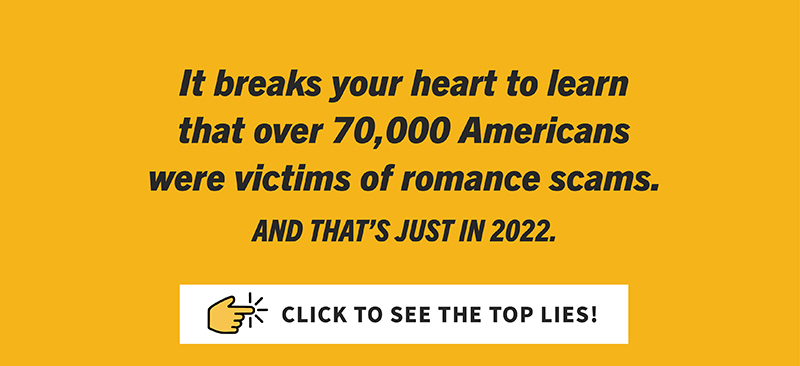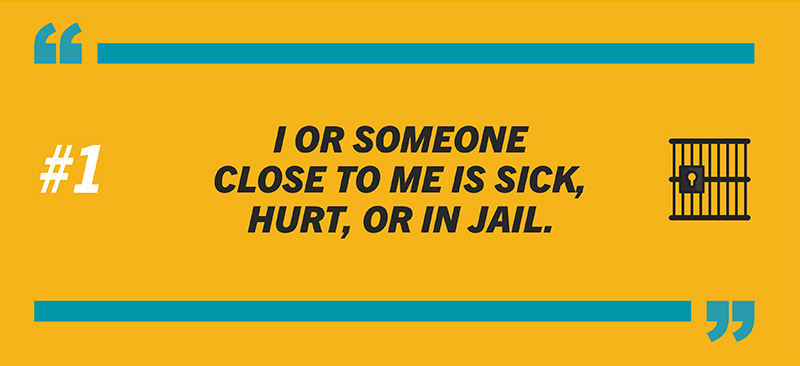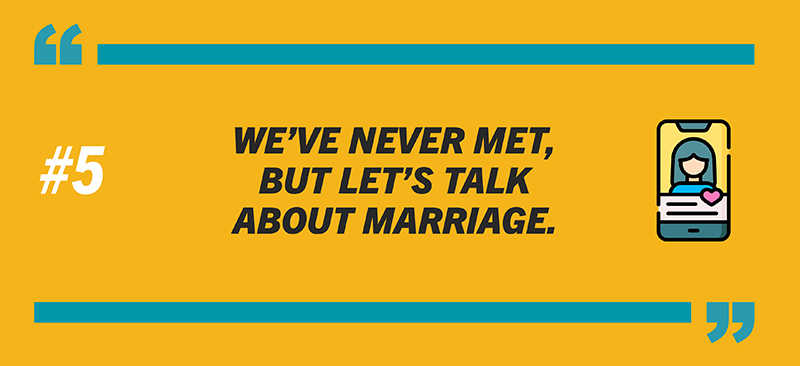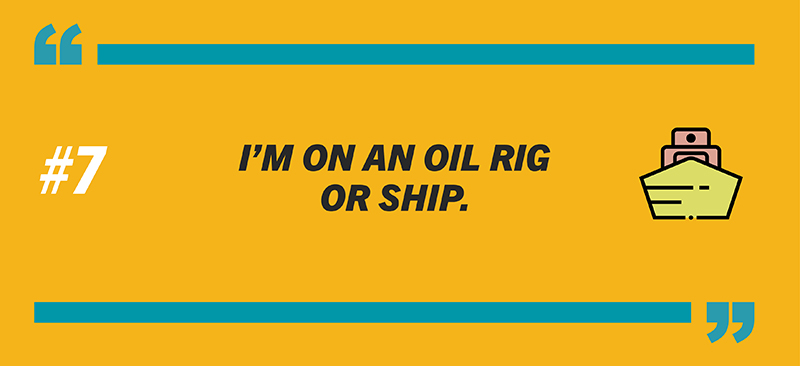Think before you swoon
Here’s how to protect your heart, and your money, when love comes calling.
![]() Romance scammers prey on innocent people with intent that’s decidedly unromantic. And they all rely on one simple gambit: Winning your trust. The best way to thwart love scammers is to be clear-eyed about the ways they steal your heart, and your wallet.
Romance scammers prey on innocent people with intent that’s decidedly unromantic. And they all rely on one simple gambit: Winning your trust. The best way to thwart love scammers is to be clear-eyed about the ways they steal your heart, and your wallet.
How romance scammers reach you
Scammers use our favorite apps and services:

![]() Emails and Messaging Apps
Emails and Messaging Apps
Keep alert for unsolicited emails, or messages through social media messaging apps
Watch for friend requests, direct messages, or comments on your posts — they’ll use any side door they can find to get through, often pretending to share your friends and interests.
Make sure your dreamboat isn’t a nightmare waiting to happen
To win your trust, scammers press every emotional lever, preying on loneliness and our shared need for
companionship. Here’s a quick review of their favorite strategies:
The desperate “friend”: Scammers often pose as a trusted romantic interest or family member, claiming to be in trouble and in need of an emergency wire transfer. Scenarios include medical emergencies, car accidents, and muggings. Always take time to collect your thoughts and confirm the identity of that person in need.
Love at first “like”: Scammers like to strike just days or hours after getting a response, showering you with
attention before you’ve had a chance to verify their identity, or even collect your thoughts.
No time to spare!: Often, your scammer will up the urgency to manipulate you into sending cash.
Catfishing: Watch out for fake online profiles that often use real photos on social media or dating apps and websites.
In love, but never in person: Romance frauds will always wiggle out of meeting in-person. They have to! Common excuses include working overseas, serving in the military, sailing as a merchant marine, and more.

Be sure you never provide your personal financial information until you’re 100 percent confident that the person you’re dealing with is who they say they are.
Stay Connected
Do your own research
Find out if a debt collector is licensed or is conducting business while their application is being reviewed. Search Here
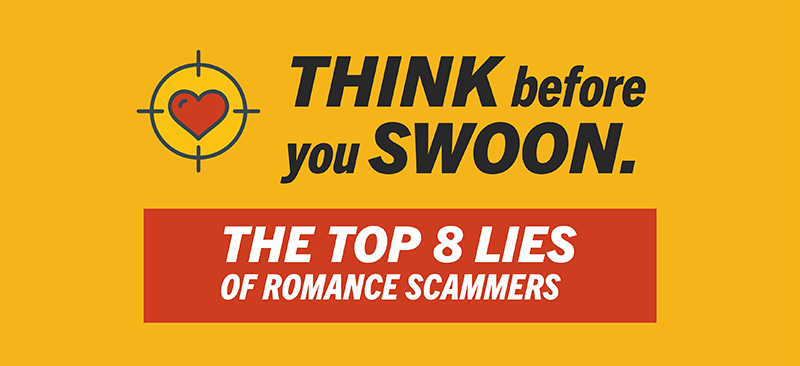
If you suspect you’re being scammed
- Stop communicating immediately.
- Do not invest or send money just because someone asks you to. If your online sweetheart asks for money, it’s likely a scam.
- Block the scammer on social media, email, messaging apps, and every platform they’ve used to communicate with you.
- Talk to someone you trust. Are your friends or family concerned about your new love interest?
- Search online for the type of job the person has, plus the word “scammer.” For example, search for “oil rig scammer” or “US Army scammer.” Have other people posted similar stories?
- Do a reverse image search of the person’s profile picture. Is it associated with another name or details that don’t match up?
What You Can Do
File a Report Online
If you think you are the target of a scam or that your rights have been violated submit a complaint online, call us at (866) 275-2677 or send an email to [email protected].


